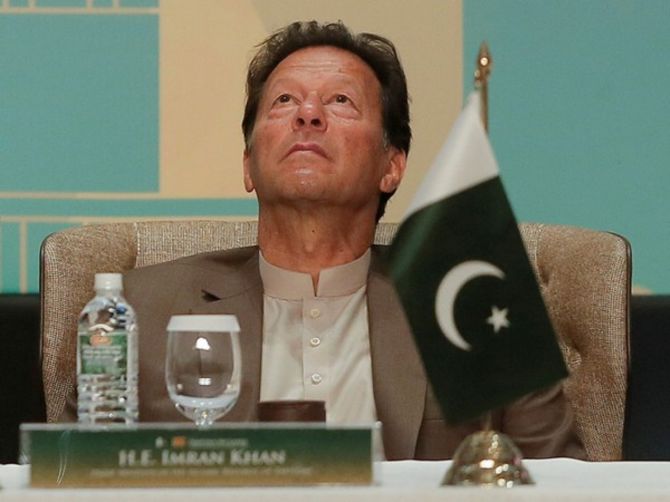As the political turmoil in Pakistan continues to exacerbate, rights groups have warned that democratic institutions in the country are facing a new threat.

Opposition political parties this month sought a no-confidence motion in parliament to remove Pakistan Prime Minister Imran Khan.
Government officials responded by threatening violence and briefly detaining two members of parliament.
The situation risks spiraling into a dangerous confrontation.
Under Pakistan's constitution, the prime minister ceases to hold office if the majority of the members of the National Assembly vote for a motion of no-confidence.
The government has announced that this vote will be held on March 28. On March 10, police stormed the parliamentarians' apartments in Islamabad and detained two opposition MPs along with several other opposition activists.
The police alleged that volunteers from the opposition Jamiat-Ulema-e-Islam F had entered the apartments without permission.
They were released within hours.
Four days later, federal minister Ghulam Sarwar Khan threatened to "blow up the opposition in a suicide attack."
Shahbaz Gill, a special assistant to the prime minister, said that photographs of "traitors" -- meaning any members of ruling Tehreek-i-Insaf party who votes against Khan -- would be displayed in cities so people could identify them.
Pakistan's information minister Fawad Chaudhry suggested that supporters would come to Islamabad on voting day and warned that anyone who wishes to vote against Khan would "have to pass through these people on their way in and out of the Parliament building."
In response, the opposition Pakistan Democratic Alliance called on its own supporters to also gather in Islamabad, setting the stage for a potentially violent confrontation.
According to Human Rights Watch, the government has a responsibility to uphold the constitution and allow for voting without threats or violence on the no-confidence motion.
"Both the government and opposition should send a strong message to their supporters not to subvert the democratic process or sway the vote through intimidation or other criminal acts," the rights watchdog added.
It further emphasised that parliamentary voting is a core democratic principle and attempts to obstruct it risk further undermining an institution vital to representative government and the rule of law.
Against this backdrop, Pakistan's opposition leaders have threatened to stage a "sit-in" in the lower house and disrupt the Organisation of Islamic Cooperation summit, if the no-confidence motion against Imran Khan is not presented in the National Assembly on Monday, the deadline for tabling the resolution.
If the opposition stages a sit-in then an Organisation of Islamic Cooperation summit that is scheduled to take place there on the same day will be hampered.
According to the rules, the resolution, "shall not be voted upon before the expiry of three days, or later than seven days."
Therefore, the speaker must call the lower house in session by March 22, while voting on the no-confidence motion must take place between three and seven days after the session is summoned.
However, Pakistan Peoples Party Chairperson Bilawal Bhutto-Zardari on Saturday that he had been receiving reports of the NA speaker intending to go against the Constitution, law and rules of the house regarding the no-trust move, Dawn reported.
"But if the speaker's non-democratic thinking (comes in the way) ... and he doesn't move the no-confidence motion by Monday, then I will propose within in my party and to other opposition parties as well not to leave the hall," he warned.











 © 2025
© 2025